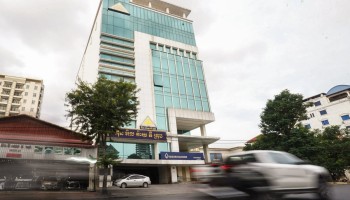Western Europe and the European Union have the best anti-money laundering (AML) laws and are most equipped to counter financial crimes, according to the Basel Institute on Governance, an NGO dedicated to strengthening governance and combating corruption worldwide.
Each year, the organization publishes its AML Index, ranking countries based on their anti-money laundering frameworks and highlighting regional strengths and weaknesses in addressing financial crimes.
The index evaluates countries by their AML frameworks, corruption levels, financial transparency, political accountability, and political risk. Data sources for these assessments include the Financial Action Task Force (FATF), the U.S. State Department, and Reporters Without Borders, among others.
Western Europe and the EU performed well across most metrics in the 2024 rankings, with Malta and Bulgaria being the only countries in the region to receive above-average risk scores. However, financial transparency remains a vulnerability, given the region's large economies and their significant role in global finance.
Eastern Europe and Central Asia scored below average, primarily due to concerns about corruption, political risks, and weak press freedom. The Basel Institute noted a lack of progress in investigating, prosecuting, and sanctioning money laundering offenses in these regions. Russia was excluded from the 2024 index following its suspension from FATF membership.
In East Asia and the Pacific, rankings were polarized. New Zealand scored just outside the top 10 globally, while Myanmar was labeled the highest-risk country for financial crimes.
In Latin America and the Caribbean, financial crime risks were generally low due to the limited number of large financial centers, but AML efforts were deemed weak, particularly concerning drug trafficking and environmental crimes.
The Middle East and North Africa performed well in existing AML frameworks but poorly in financial transparency and corruption indicators. South Asia ranked below average across all metrics except transparency.
North America fared well, but both the U.S. and Canada were flagged for high financial transparency risks, linked to their massive financial centers. The U.S. Corporate Transparency Act, effective January 2024, mandates businesses to disclose beneficial ownership information, which may address these concerns.
Sub-Saharan Africa scored the lowest globally, with only Namibia, Seychelles, Mauritius, and Botswana avoiding high-risk ratings. Weaknesses in transparency and preventing the proliferation of weapons of mass destruction were identified as key issues.
The Basel Institute emphasized the challenges of tackling transnational fraud and money laundering, which often involve multiple jurisdictions. It also highlighted underreporting of financial crime in some countries, which skews the risk assessment.
Since 2013, global AML efforts have improved significantly, attributed in part to the $206 billion spent by financial institutions on compliance measures in the past year.






